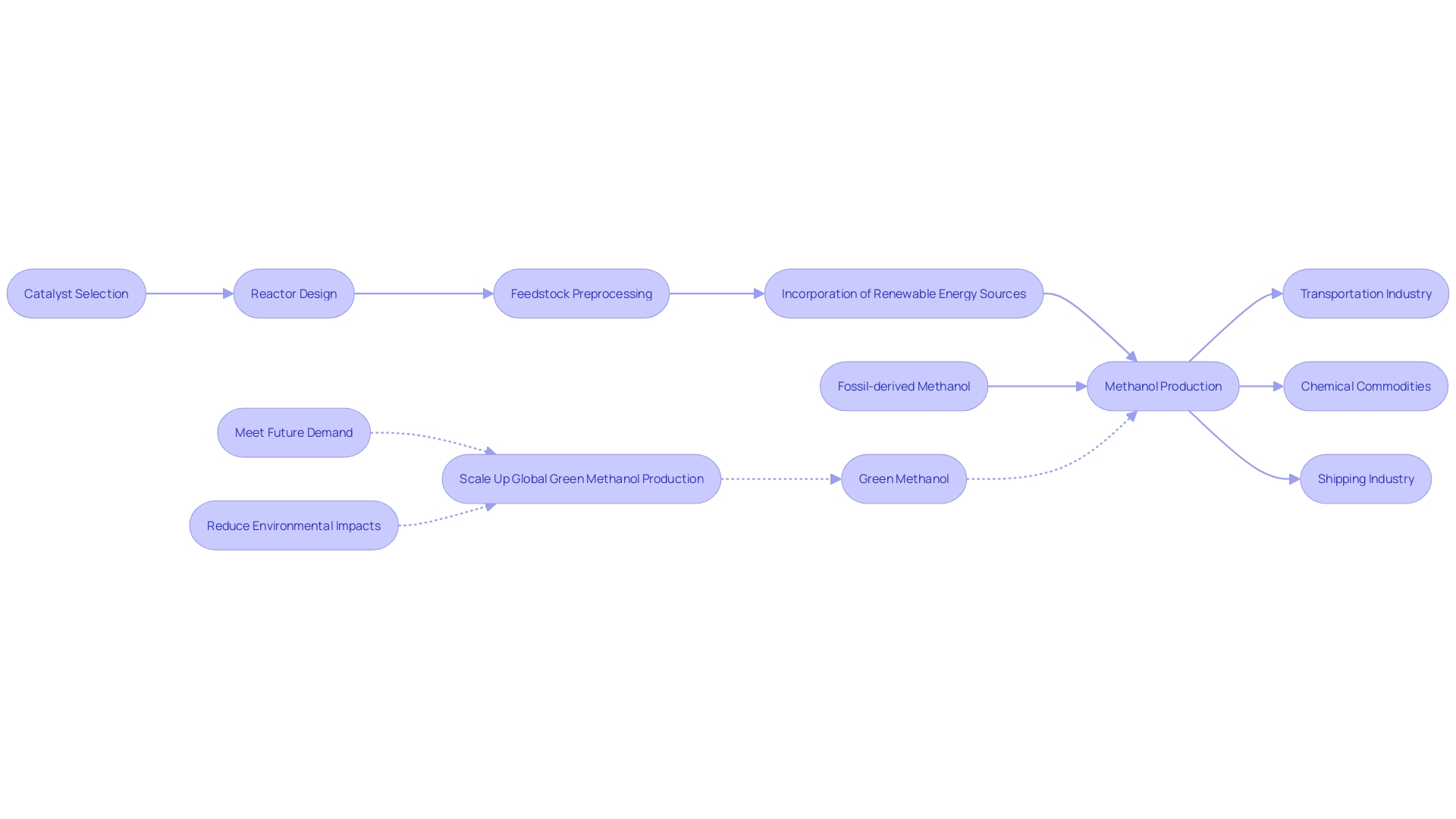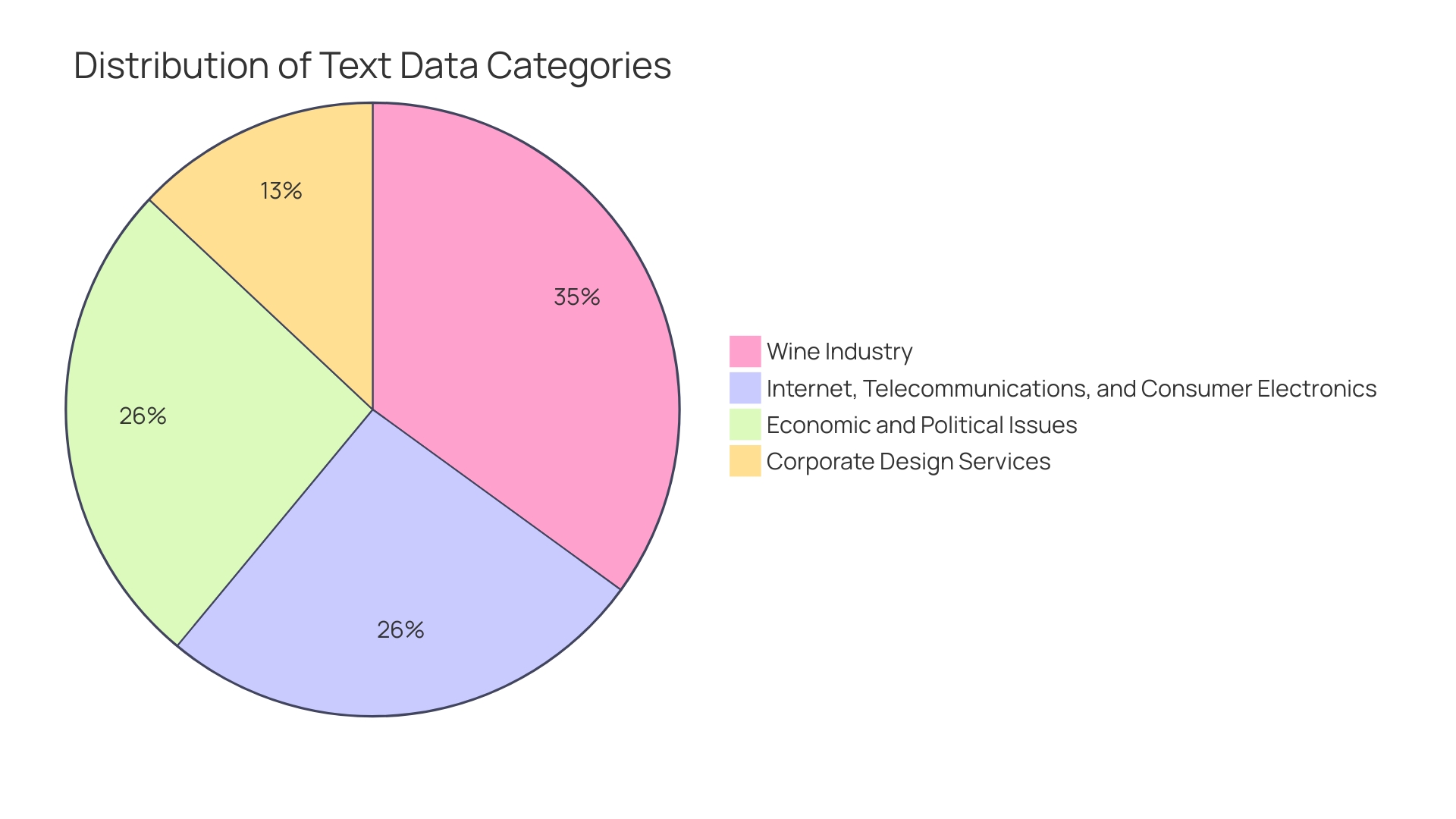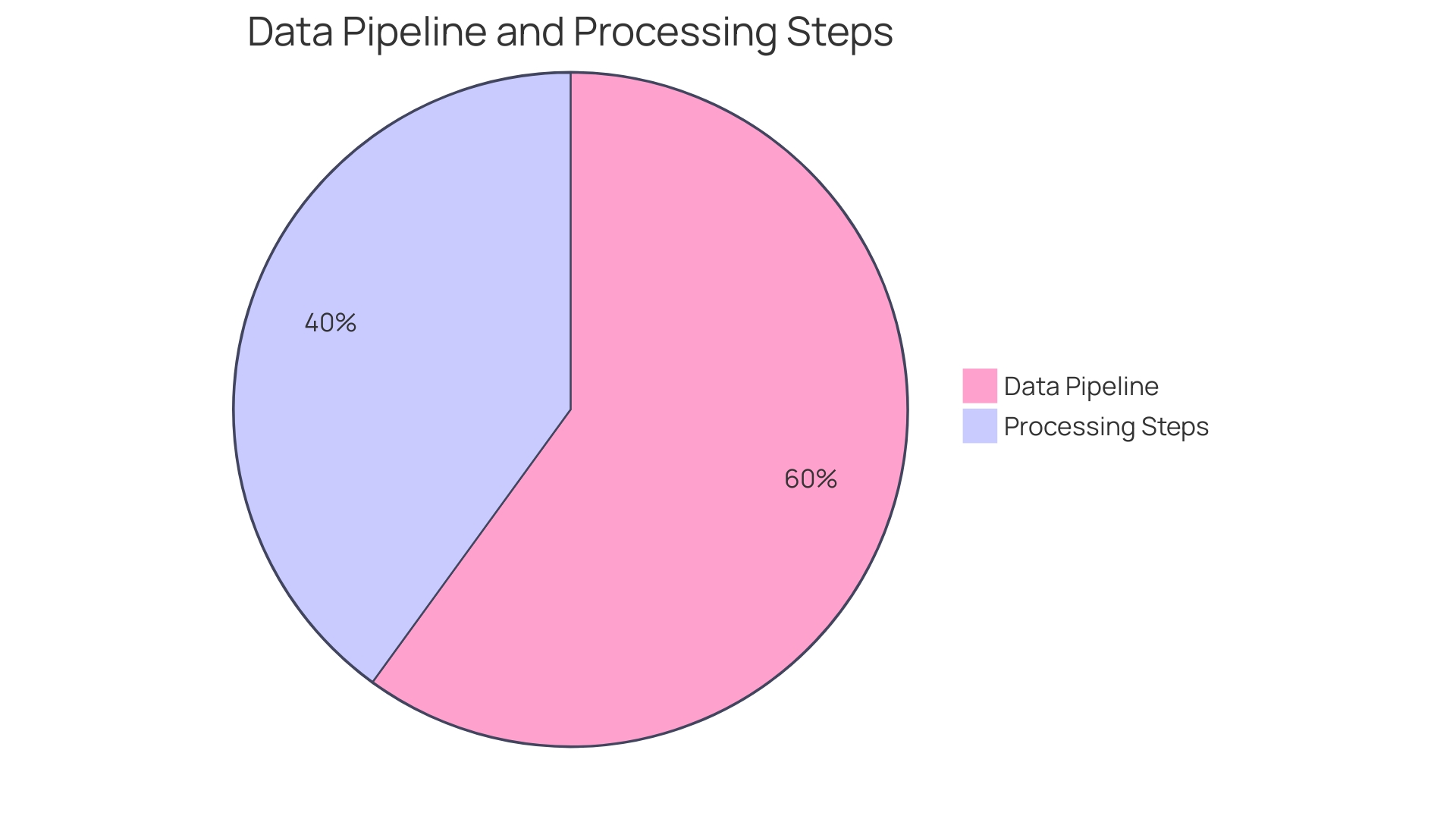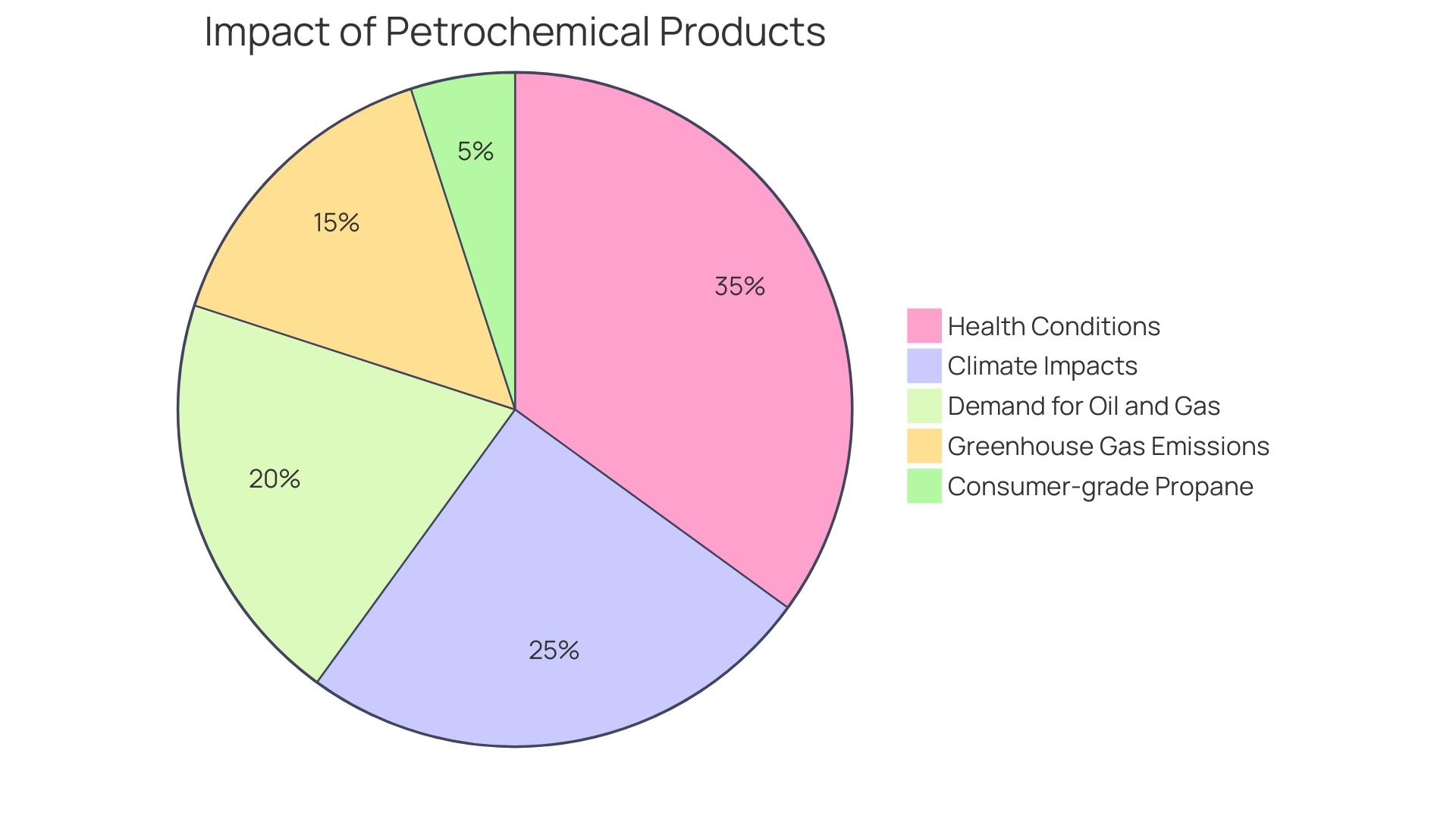Introduction
Recent advancements in the methanol production landscape have ushered in a new era of efficiency and sustainability. Cutting-edge catalysts, innovative reactor designs, and superior feedstock preprocessing methods are revolutionizing the industry. Methanol's unique properties as a liquid energy carrier make it a superior alternative to gaseous fuels like hydrogen and methane.
Its compatibility with existing infrastructure further solidifies its position as a cornerstone of a sustainable hydrocarbon economy. Methanol's versatility extends beyond its role in various industries; it also serves as a clean-burning fuel for transportation. The development of e-methanol, produced using renewable energy, shows promise for decarbonizing challenging sectors like road transport, shipping, and aviation.
One of the most significant breakthroughs is the use of bio-e-methanol, which involves incorporating hydrogen into the production process, doubling production volumes, and offering a competitive and sustainable fuel alternative. Methanol-fueled vessels are becoming increasingly popular in the shipping industry, aligning with emission reduction goals. The shift towards green methanol is imperative to meet the expanding demand for non-fossil methanol, which could triple by 2050.
The evolving process of methanol production benefits from public and private R&D investments, showcasing the collaborative and innovative efforts required to fuel the global energy transition.
Technological Advancements in Methanol Production
Recent advancements in the methanol production landscape have heralded a new era of efficiency and sustainability, with cutting-edge catalysts, innovative reactor designs, and superior feedstock preprocessing methods playing pivotal roles. As a liquid energy carrier, methanol's ease of transportation and storage gives it an edge over gaseous alternatives like hydrogen and methane. Its compatibility with current petrol infrastructure, with minimal modifications, further solidifies its position as a cornerstone of a sustainable hydrocarbon economy.
Methanol's versatility extends to its role in creating organic compounds for various industries and as a clean-burning fuel for transportation. The development of e-methanol, produced using renewable energy, is particularly promising for sectors such as road transport, shipping, and aviation, which are traditionally challenging to decarbonize. This green variant not only aligns with existing infrastructure but also boasts an indefinite shelf life at room temperature and ambient pressure.
One of the most significant breakthroughs is the use of bio-e-methanol, which involves the incorporation of hydrogen into the production process, utilizing green carbon from low-grade biological residues. This innovative approach has the potential to double methanol production volumes and offer a competitive and sustainable fuel alternative.
Moreover, the shipping industry is actively transitioning towards methanol-fueled vessels to meet stringent emission reduction goals. Companies like Maersk are leading the charge with methanol-powered ships, marking a significant step towards the International Maritime Organization's target of climate neutrality by 2050.
In the chemical commodity market, methanol is a staple. The shift from fossil-derived methanol to green methanol is imperative to meet the expanding demand for non-fossil methanol, which could see demand triple to approximately 300 million tons annually by 2050. This underscores the importance of scaling up global green methanol production capacity.
The evolving process of methanol production benefits from both public and private R&D investments, aiming to enhance refining operations' value and efficiency while minimizing environmental impacts. Such progress in methanol technology and production is a testament to the collaborative and innovative efforts required to fuel the global energy transition.

Case Study: Successful Implementation of Methanol Biofuel Technologies
The maritime sector is witnessing a paradigm shift with the adoption of methanol as a cleaner alternative to traditional fuels. A prime example of this transition is the project led by the Dutch systems integrator Alewijnse, which involves converting the research vessel Fugro Pioneer to run on methanol. Funded by the Netherlands Enterprise Agency, this initiative is a part of the MENENS consortium aiming to promote emission-free Dutch shipping.
The use of green methanol is particularly noteworthy, offering a substantial reduction in CO2 emissions and being recognized as a viable fuel for the foreseeable future within the maritime industry. The conversion process involves the integration of a new Alarm Monitoring and Control System (AMCS), modifications to the power management, fire protection, and CCTV systems, and the installation of a methanol bunkering station.
Cutting-edge projects like the Fugro Pioneer conversion are complemented by the arrival of the Laura Maersk, the world's first methanol-powered container ship, at the Port of Felixstowe. Maersk's ambition to achieve net-zero greenhouse gas emissions by 2040 underscores the industry's commitment to sustainability.
Furthermore, the production of bio-methanol is gaining traction, utilizing low-grade biological residual materials with the addition of hydrogen, effectively doubling the production output. Norwegian Hydrogen's integration of bio-waste and hydrogen exemplifies an efficient use of resources, resulting in bio-e-methanol—a cost-competitive and green liquid hydrogen carrier.
The Bloomberg New Economy Climate Technology Coalition, formed in 2022, highlights the urgency of scaling up green technologies such as methanol to mitigate climate change. The coalition's focus on decarbonizing sectors difficult to abate sets a precedent for swift innovation in the energy sector.
In the context of global emissions reduction, technologies available today are capable of achieving the bulk of the reductions required by 2030. However, to fully realize a net-zero future, particularly in industries like shipping that are challenging to decarbonize, acceleration in technological innovation is crucial. The International Energy Agency's Clean Energy Technology Guide monitors over 550 technology designs pivotal for reaching net-zero emissions, emphasizing the significance of demonstration projects in overcoming commercialization challenges and driving investor confidence.
Clariant – Sunliquid®: Enzymatic Hydrolysis to Ethanol
The Sunliquid® process by Clariant is at the forefront of advancing the renewable energy sector by turning lignocellulosic biomass into ethanol, a biofuel with growing importance in the global energy mix. The enzymatic hydrolysis technique employed in this process is a key factor in its operation, optimizing the conversion of plant material into fermentable sugars which are then transformed into ethanol. The process's high efficiency stems from its ability to break down complex carbohydrates without the need for additional chemicals, positioning it as a cleaner alternative to conventional methods.
Despite the innovative nature of Clariant's technology, the path to its successful deployment has not been without its hurdles. The integration of digital solutions at the outset of process development, manufacturing, and quality assurance has been instrumental in overcoming these challenges. Digitalization has led to the creation of new process models, the validation and renewal of existing ones, and the enhancement of information flow, manufacturing, and automation. The shift from paper to digitalized databases has been particularly beneficial, streamlining data handling and enabling knowledge transfer across various production scales.
The significance of this technology is underscored by the broader industry trends, where there's an apparent shift in consumer preferences toward novel and diverse alcoholic beverages. The global ethanol market, a key segment of this industry, has seen considerable growth with production expected to reach around 110 billion liters in 2020, marking a 33% increase over the past decade. The United States has notably increased its market share in this period, with leading producers such as Poet, ADM, and Valero controlling a substantial portion of the global output.
This growth momentum is partly fuelled by the increasing recognition of ethanol's role in mitigating climate change, emphasizing the need for sustainable production methods like the Sunliquid® process. As Dr. Christine Gabardo of CERT Systems Inc points out, conventional petrochemical processes, such as ethylene production, contribute significantly to greenhouse gas emissions. Innovations like Clariant's technology are therefore crucial in the transition towards a more sustainable and environmentally friendly production landscape.
In summary, the Sunliquid® process embodies the potential of biotechnological advancements to revolutionize the energy sector, providing a sustainable and efficient pathway to ethanol production. As the industry continues to navigate the complexities of market dynamics and digital integration, such innovations serve as a beacon for a cleaner, more sustainable future.

Chemrec: Black Liquor Gasification and Methanol/DME Synthesis
Chemrec's black liquor gasification is at the forefront of methanol and dimethyl ether (DME) production, presenting a promising avenue for renewable fuel synthesis. This process not only capitalizes on the high product selectivity crucial for efficient fuel production but also aligns with the growing need for green shipping fuels. As international maritime organizations target net-zero emissions by 2050, with interim goals set for 2030 and 2040, methanol emerges as a key player due to its potential to significantly reduce CO2 emissions. The adoption by major shipping companies, such as Maersk, of methanol-compatible vessels underscores the industry's commitment to sustainable practices.
Furthermore, Chemrec's technology dovetails with recent advancements in methanol production from natural gas, which constitutes a substantial portion of China's methanol production capacity. The process's economic viability is bolstered by its compatibility with existing infrastructure, as demonstrated by China's integration of carbon-neutral liquefied natural gas into its fuel supply chain. Coupled with the latest findings in Nature Catalysis on low-energy methanol synthesis, the black liquor gasification method stands as a beacon of innovation in renewable fuel technology.
The synthesis of methanol and DME through Chemrec's method also has far-reaching implications for chemical recycling, another vital component of a sustainable future. Methanol serves as a building block for various chemical products, making it a linchpin in the push towards a circular economy where materials like plastics are efficiently recycled. With the global plastic recycling rate at a mere 10.9%, advancements in chemical conversion processes, such as those pioneered by Chemrec, are key to increasing the share of recycled materials. This technology, therefore, not only promises environmental sustainability but also supports the structural transformation required for a climate-neutral economy.

Enerkem: Waste Gasification for Methanol Production
Enerkem's waste gasification technology harnesses the power of chemical recycling, offering a forward-thinking approach to methanol production and simultaneously addressing the mounting issue of waste management. This technology takes on the challenge of plastic waste, which has burgeoned to an annual production of 359 million tons, with a significant amount ending up in landfills and oceans, posing severe environmental threats. Through gasification, Enerkem capitalizes on the high percentage of polyolefins in urban waste, converting them into valuable biofuels, such as methanol, a key ingredient in the production of sustainable energy solutions.
The gasification process intricately transforms waste materials, including plastics, into syngas—a mixture of hydrogen and carbon monoxide. This is achieved by leveraging the reaction mechanisms of gas generation during pyrolysis, optimizing the yield of target gases. With the deployment of cutting-edge catalysts containing platinum, the reaction temperature is significantly reduced, bolstering the efficiency of converting dimethoxymethane into syngas, and thereby enhancing the overall sustainability of the method.
Enerkem's success is further underscored by the global shift towards greener alternatives, with methanol-fueled ships like the Laura Maersk heralding a new era in maritime transport, reducing the carbon footprint of one of the world's most carbon-intensive industries. The application of such technologies aligns with visionary initiatives like NEOM, a beacon for sustainable development, striving to create a new paradigm for livability and conservation.
This section delves into the intricate workings of Enerkem's gasification technology, underscores its environmental advantages, and highlights its role in the burgeoning bioeconomy. By pivoting away from traditional disposal methods and embracing chemical recycling, we can mitigate the environmental impact of waste and move closer to a more sustainable, circular economy.

Challenges and Lessons Learned
The pursuit of methanol biofuels represents a pivotal shift in the renewable energy landscape, addressing critical challenges such as feedstock availability and process efficiency. With the global impetus to decarbonize industries like aviation—a sector contributing approximately 2% of global energy-related CO2 emissions—biofuels like methanol provide a promising alternative. Sustainable aviation fuels, as endorsed by the International Civil Aviation Organization, are sought after due to the impracticalities associated with battery and hydrogen-powered aircraft, which would necessitate comprehensive overhauls of aircraft designs and airport infrastructure.
In the green methanol arena, the role of collaborative innovation is underscored by Johnson Matthey's longstanding commitment to sustainable technology, emphasizing the need to decarbonize and improve sustainability through advanced metals chemistry. The integration of hydrogen into methanol production, as practiced by Norwegian Hydrogen, exemplifies how bio-waste and hydrogen synergize to optimize energy utilization, doubling methanol production volumes and promoting a green liquid hydrogen carrier at competitive prices.
Furthermore, the Bloomberg New Economy Climate Technology Coalition, formed in 2022, champions the acceleration of climate-critical green technologies to combat industrial emissions. The coalition, which includes technology specialists, financiers, and industrialists, focuses on overcoming obstacles to scaling up clean hydrogen ecosystems and decarbonizing 'hard-to-abate' sectors, including the development of low-carbon methanol.
The burgeoning green methanol industry, as highlighted by Brian Davis of C2X, benefits from strong customer demand and regulatory support, creating a market that is both sizeable and expanding. Such advancements not only fuel chemical industries and maritime operations but also support aviation's transition to sustainable fuels.
To encapsulate the industry's sentiment, the energy sector is on the cusp of a transformation akin to the founding of General Electric by pioneers like Edison and Morgan. Today's hydrogen field and the development of biofuels represent not only a robust technological feat but also a commercially viable venture that continues to grow in scale and market presence.
Financing and Economic Viability of Methanol Biofuel Plants
Methanol is not only a key chemical commodity but also an emerging fuel that can be produced sustainably. The transition to green methanol production, utilizing renewable energy or biomass, is not just environmentally imperative but also an economic opportunity. Financially, the methanol biofuel sector requires significant investment, with factors such as feedstock costs, technological advancements, and energy prices influencing the overall cost structure. Revenue streams can be diversified by targeting various market segments, including the chemical industry and, increasingly, the maritime sector, where green methanol is gaining traction as a cleaner fuel alternative.
The economic case for methanol biofuel plants is bolstered by regulatory support and a growing customer demand. Companies like ABEL Energy and Johnson Matthey are pioneering in the field, integrating green hydrogen into methanol production. Moller Holding's ambitious plan to produce over three million tonnes annually by 2030 exemplifies the industry's potential for growth and profitability.
According to recent news, the industry is poised for rapid expansion, driven by the maritime sector's shift towards greener fuels in response to stricter emission standards set by the International Maritime Organization. With this pivot, the demand for methanol as a marine fuel is surging, as evidenced by Maersk's methanol-powered vessels and the increasing number of orders for methanol-compatible ships.
The European biofuel market, with countries like France, the UK, Germany, and Poland playing prominent roles, is particularly promising. The EU's supportive policies are accelerating the growth of biofuels, including green methanol. The projected tripling of methanol demand by 2050, with a significant portion being green methanol, underscores the need for a substantial increase in production capacity.
In summary, the financing and economic viability of methanol biofuel plants are critical for their success. With a robust market outlook, regulatory backing, and technological advancements, the industry is well-positioned to capitalize on the shift towards sustainable energy solutions. As companies and countries aim to reduce their carbon footprint, methanol biofuel plants present an attractive investment with promising returns.

Regulatory Framework and Policy Support
The global methanol market is evolving with a growing emphasis on sustainable sources, as methanol becomes increasingly integral in a variety of applications, ranging from plastics to fuel. Regulatory frameworks and policy initiatives are pivotal in steering the development and trading of methanol biofuels. Understanding these regulatory landscapes is essential for stakeholders to navigate the market effectively.
Governmental policies play a crucial role in fostering the methanol biofuels industry, as evidenced by the heightened interest in methanol-powered ships. With the International Maritime Organization's (IMO) Marine Environment Protection Committee proposing new emission reduction targets, there is a discernible shift towards methanol fuels. This shift is substantiated by the surge in orders for methanol-powered ships, which, alongside LNG-powered vessels, are redefining clean fuel shipping standards.
The regulatory support for methanol biofuels is not just limited to the marine sector. Broader initiatives aimed at decarbonizing 'hard-to-abate' sectors have gained momentum, primarily focusing on technologies such as low-carbon ammonia and methanol. These efforts are part of a larger movement led by the Bloomberg New Economy Climate Technology Coalition to rapidly scale up climate-critical green technologies.
The production of green methanol, particularly from renewable energy sources or agricultural and forestry byproducts, represents a significant opportunity to replace fossil-based methanol. With new engine technologies, green methanol stands as a promising alternative to reduce fossil emissions, especially in shipping. Given the projected growth in methanol demand, which could potentially triple to 300 million tonnes by 2050, the expansion of green methanol production capacity becomes imperative.
Stakeholders, including C2X's newly appointed CEO Brian Davis, are optimistic about the industry's ability to drive down production costs over time, thanks to robust customer demand and regulatory backing. The green methanol industry's nascent stage, combined with emerging technologies, presents both challenges and opportunities for growth.
As the industry navigates these developments, it is critical for participants to engage with regulatory processes, ensuring their voices are heard without compromising confidential information. By actively participating in public comment periods and adhering to submission protocols, stakeholders can contribute to shaping the policies that will govern the future of methanol biofuels.
The transition to methanol as a sustainable fuel source is gaining traction, driven by regulatory frameworks and policy support. With organizations like the Bloomberg New Economy Climate Technology Coalition advocating for industrial decarbonization, and market trends indicating a strong customer pull towards green methanol, the future of methanol biofuels appears poised for significant expansion.

Infrastructure Requirements and Compatibility
The burgeoning field of methanol biofuels presents a transformative opportunity for the energy sector. Companies like ABEL Energy in Australia are pioneering the shift to green methanol, leveraging their expertise in green hydrogen and synthetic fuels. Such advancements are crucial for establishing a robust infrastructure that supports methanol production, storage, and distribution. The Methanol Institute and Australian Hydrogen Council are pivotal in shaping industry standards and fostering collaboration, as seen in the green methanol industrial chain project in China, involving COSCO Shipping and other key players. This initiative aims to create an end-to-end supply chain for green methanol, meeting stringent domestic and international green certifications.
Methanol's versatility is highlighted by its use as a clean-burning fuel in the maritime sector, with the Laura Maersk being the world's first methanol-powered container ship, signifying a significant step towards reducing shipping emissions. Maersk's commitment to a fleet of methanol-enabled vessels underscores the industry's movement towards net-zero emissions and the critical role of infrastructure compatibility.
Experts, such as Brian Davis of C2X, emphasize the nascent state of the green methanol industry and the potential to scale production while driving down costs. The industry's trajectory is supported by strong customer demand and regulatory frameworks that encourage sustainable practices. Johnson Matthey's two centuries of experience in sustainable technologies further solidify the technical capacity to innovate within this space.
The future of methanol biofuels hinges on a significant increase in global production capacity to meet the anticipated demand, which could triple by 2050. As green methanol becomes a fundamental building block for products and a viable alternative fuel, the focus shifts to developing large-scale, cost-effective production facilities capable of delivering on the promise of a greener, more sustainable future.
Sustainability Evaluation and Environmental Benefits
Methanol, a clear and flammable liquid, is traditionally used in the production of chemicals like formaldehyde and plastics and even as a racing car fuel. However, its role in reducing greenhouse gas emissions has positioned it as a sustainable alternative to fossil fuels. Green methanol, produced from biomass or captured CO2, is gaining traction, especially in industries such as shipping, which is responsible for almost 3% of global CO2 emissions. The International Maritime Organization has set ambitious targets to reduce these emissions by at least 70% by 2040, with companies like Maersk leading the way by ordering methanol-compatible vessels.
The environmental benefits of green methanol are significant. For instance, the use of biogas, a precursor of bio-methanol, not only reduces emissions in transport but also prevents methane release from landfilling or manure storage, further contributing to GHG savings. This aligns with efforts to meet Sustainable Development Goals by improving socio-economic conditions through affordable clean energy and bolstering rural mobility.
Despite its potential, green methanol's production is challenged by its toxicity, flammability, and lower energy content compared to oil—requiring 2.5 times the volume for the same energy. It is also costlier to produce than fossil-based methanol. Yet, global methanol trade is on the rise, and the push towards green methanol from sources like agricultural byproducts is strong. The transition to green methanol necessitates a significant increase in non-fossil methanol production to meet the projected demand, which could triple by 2050.
Assessing the sustainability of methanol biofuels involves a comprehensive examination of their life cycle, considering factors such as greenhouse gas emissions, land use, water consumption, and waste generation. Prospective life cycle assessment (LCA) is a valuable tool for analyzing emerging bio-based products and technologies at different stages of development. Although LCA results vary due to differences in biomass feedstock and technology, they are critical in ensuring that bio-based products contribute positively to a sustainable economy.
The adoption of methanol biofuels is underscored by recent advancements, such as the inaugural docking of the world's first methanol-powered container ship, the Laura Maersk, at the Port of Felixstowe. This marks a significant step towards sustainable shipping and the broader goal of achieving climate neutrality. As the EU prepares to reduce greenhouse gas emissions from marine fuels, the role of green methanol becomes increasingly relevant, offering a promising pathway to a more sustainable future.
Future Prospects and Research Directions
The renewable fuels industry is on the cusp of a significant transformation with the rise of methanol biofuels, a sector brimming with potential due to advancements in research and innovative technologies. Companies like ABEL Energy in Australia and global technology leader Johnson Matthey are pioneering efforts in the production and utilization of green methanol, which is poised to serve as a sustainable alternative to fossil-based methanol.
Methanol has long been a cornerstone in the production of various products, from plastics to textiles. Traditionally derived from natural gas and coal, the industry is now shifting towards eco-friendly green methanol, produced using renewable energy sources or from agricultural and forestry byproducts. This transition is vital as the demand for methanol is projected to surge, potentially reaching 300 million tonnes annually by 2050, with green methanol taking precedence.
Recent milestones in the shipping industry underscore the viability of methanol as a cleaner fuel alternative. The Laura Maersk, the world's first methanol-powered container ship, epitomizes this shift, showcasing methanol's potential to significantly reduce greenhouse gas emissions in the sector, which currently accounts for about 3% of global emissions. Maritime organizations aim to achieve climate neutrality by 2050, with substantial emission reductions by 2030 and 2040, further cementing methanol's role in decarbonizing hard-to-abate industries.
The impetus for this evolution stems from concerted efforts by coalitions such as the Bloomberg New Economy Climate Technology Coalition, which brings together technology specialists, researchers, financiers, and industrialists. Their objective is to expedite the scaling of green technologies crucial for industrial decarbonization and to address the challenges within the clean hydrogen ecosystem and other sectors.
Furthermore, Europe is experiencing rapid growth in the biofuel market, with a strong emphasis on ethanol, biodiesel, and renewable diesel. The European Union's supportive policies and initiatives are propelling this region to become the fastest-growing biofuel market, underlining the global commitment to a greener future.
In essence, the methanol biofuel sector is set to play a pivotal role in the global transition towards renewable energy, with increasing production capacities, technological advancements, and a robust market demand driving its growth.
Conclusion
Recent advancements in methanol production have revolutionized the industry, positioning it as a superior alternative to gaseous fuels like hydrogen and methane. Methanol's versatility extends beyond various industries; it also serves as a clean-burning fuel for transportation. The development of e-methanol, produced using renewable energy, shows promise for decarbonizing challenging sectors like road transport, shipping, and aviation.
Methanol-fueled vessels are becoming increasingly popular in the shipping industry, aligning with emission reduction goals. The shift towards green methanol is crucial to meet the expanding demand for non-fossil methanol, which could triple by 2050.
Successful implementation of methanol biofuel technologies, such as converting vessels and deploying methanol-powered ships, highlights the industry's commitment to sustainability. Clariant's Sunliquid® process and Chemrec's black liquor gasification present promising avenues for ethanol and dimethyl ether production, supporting the transition to a climate-neutral economy. Enerkem's waste gasification technology addresses waste management while producing valuable biofuels like methanol.
The financing and economic viability of methanol biofuel plants are crucial for their success. With regulatory support, growing customer demand, and technological advancements, the industry is well-positioned for the shift towards sustainable energy solutions. Stakeholders are pioneering efforts to create an end-to-end supply chain for green methanol, ensuring stringent certifications and compatibility with existing infrastructure.
Methanol biofuels offer environmental benefits, such as reducing greenhouse gas emissions in the shipping industry, contributing to a more sustainable future. With increasing production capacities, technological advancements, and a robust market demand, the industry is set to play a pivotal role in the global transition towards renewable energy.
In conclusion, recent advancements in methanol production, along with the successful implementation of methanol biofuel technologies, highlight the industry's commitment to sustainability. Methanol's versatility, compatibility with existing infrastructure, and potential for decarbonization make it a superior alternative fuel. With regulatory support, collaboration, and continued innovation, methanol biofuels are poised to become a sustainable solution, driving the global transition towards renewable energy.




